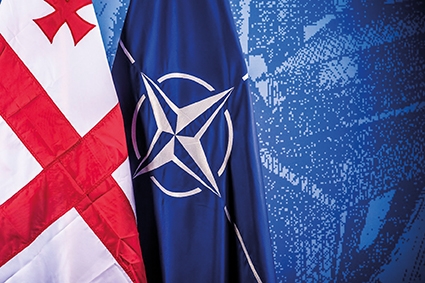Positive Outlook for Georgia in the South Caucasus Security Forum
The Fifth South Caucasus Security Forum 2018 held in Tbilisi this week was in many ways an interesting event. Interesting ideas were propounded, while the fifth anniversary of the forum itself corresponded with a number of important dates for the history of Georgia.
2018 Marks the 10th anniversary of the milestone Bucharest Summit when Georgia was promised to be granted Membership Action Plan (MAP). 2018 also marked the 10th anniversary of the effective recognition of Kosovo by many countries around the globe, which set the tone for what later in 2008 became the Russia-Georgia war. The Russians used the pretext of the Kosovo recognition as an explanation for their actions in Abkhazia and Samachablo (South Ossetia).
Thus, 2018 also marks the 10 year-anniversary of the Russia-Georgia war which set the scene for increased competition between the West and Russia for the former Soviet space over the following decade.
Among other interesting statements made by various of speakers was that the EU wants a bigger role to play in the conflict-resolution processes in its neighborhood. Moreover, the EU is willing to generally take on a larger role in world politics.
On Georgia’s NATO/EU accession chances, the speakers were generally positive, but some also pointed to the fact that Georgia needs to be better and much more often presented in European media.
Some voiced an interesting opinion that since Georgia’s accession to NATO and the EU is pretty much “improbably in the near future,” the Georgian government should be working on numerous practical issues inside the country which will further move the state towards the Western orbit.
One of them is a new military training center in Vaziani. Regarding NATO, it was also suggested that the western allies are now working on supporting Georgia and its military potential/NATO bid, bilaterally bypassing central NATO bureaucracy. The Georgian army is being transformed and the general trend is of the Georgian army being evolved into numerous small battalions rather than having large army groups. The supply of various arms and other military technologies will be given to Georgia based on state-to-state agreements.
Several of the panel speakers at this year’s Security Forum pointed out that considering how problematic Tbilisi’s western ambitions are, Georgia and Ukraine’s NATO bids should be separated from each other. This will allow NATO to consider various specifics of the two countries rather than force one scenario on the two rather different theaters of competition.
At the forum, it was also often mentioned that Georgia has fulfilled all the aspects which are necessary for NATO membership. Despite this, Georgia has often fallen short of the MAP. The speakers suggested that one of the reasons for Georgia’s non-membership could be geography.
It was even proposed that Russia might not be so much worried about Tbilisi’s NATO aspiration as about Georgia’s steps towards the EU. The Russians are worried that the EU’s economy and cultural peculiarities, along with the general soft power, might in the long-run fundamentally undermine Russian influence in the country and the region. In a number of recent articles for GT, I pointed out how Russian influence is being shattered in the former Soviet space primarily because of European strength, and that this European onslaught against Russia is more foundational than any other European projects.
Overall, the forum can be characterized as full of positive speculations on Georgia’s NATO/EU membership: a good sign as we move out of the geopolitically gloomy 10 years that have passed since 2008.
By Emil Avdaliani












